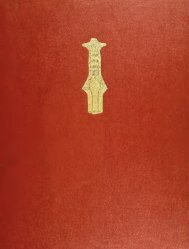What is History / by Edward Hallett Carr - Universal History Library
What is History / by Edward Hallett Carr - Universal History Library
What is History / by Edward Hallett Carr - Universal History Library
Create successful ePaper yourself
Turn your PDF publications into a flip-book with our unique Google optimized e-Paper software.
WHAT IS HISTORY<br />
Th<strong>is</strong> terminological question <strong>is</strong> an eccentricity of the Engl<strong>is</strong>h language. In every other<br />
European language, the equivalent word to 'science' includes h<strong>is</strong>tory without hesitation.<br />
But in the Engl<strong>is</strong>h-speaking world th<strong>is</strong> question has a long past behind it, and the <strong>is</strong>sues<br />
ra<strong>is</strong>ed <strong>by</strong> it are a convenient introduction to the problems of method in h<strong>is</strong>tory.<br />
At the end of the eighteenth century, when science had contributed so triumphantly both to<br />
man's knowledge of the world and to man's knowledge of h<strong>is</strong> own physical attributes, it<br />
began to be asked whether science could not also further man's knowledge of society. The<br />
conception of the social sciences, and of h<strong>is</strong>tory among them, gradually developed<br />
throughout the nineteenth century; and the method <strong>by</strong> which science studied the world of<br />
nature was applied to the study of human affairs. In the first part of th<strong>is</strong> period the<br />
Newtonian tradition prevailed. Society, like the world of nature, was thought of as a<br />
mechan<strong>is</strong>m; the title of a work <strong>by</strong> Herbert Spencer, Social Statics, publ<strong>is</strong>hed in 1951, <strong>is</strong><br />
still remembered. Bertrand Russell, reared in th<strong>is</strong> tradition, later recalled the period when<br />
he hoped that in time there would be 'a mathematics of human behaviour as prec<strong>is</strong>e as the<br />
mathematics of machines'.' Then Darwin made another scientific revolution; and social<br />
scient<strong>is</strong>ts, taking their cue from biology, began to think of society as an organ<strong>is</strong>m. But the<br />
real importance of the Darwinian revolution was that Darwin, completing what Lyell had<br />
already begun in geology, brought h<strong>is</strong>tory into science. Science was concerned no longer<br />
with some- thing static and timeless, but with a process of change and development.<br />
Evolution in science confirmed and complemented progress in h<strong>is</strong>tory. Nothing, however,<br />
occurred to alter the inductive view of h<strong>is</strong>torical method which I described in my first<br />
lecture: First collect your facts, then interpret them. It was assumed without question that<br />
th<strong>is</strong> was also the method of science. Th<strong>is</strong> was the view which Bury evidently had in mind<br />
when, in the closing words of h<strong>is</strong> inaugural lecture of January 1903, he described h<strong>is</strong>tory<br />
as 'a science, no more and no less'. The fifty years after Bury's inaugural lecture witnessed<br />
a strong reaction against th<strong>is</strong> view of h<strong>is</strong>tory. Collingwood, when he wrote in the 1930s,<br />
was particularly anxious to draw a sharp line between the world of nature, which was the<br />
object of scientific inquiry, and the world of h<strong>is</strong>tory; and during th<strong>is</strong> period Bury's dictum<br />
was rarely quoted except in terms of der<strong>is</strong>ion. But what h<strong>is</strong>torians failed to notice at the<br />
time was that science itself had undergone a profound revolution, which makes it seem<br />
that Bury may have been more nearly right than we had supposed, though for the wrong<br />
reason. <strong>What</strong> Lyell did for geology and Darwin for biology has now been done for<br />
astronomy, which has become a science of how the universe came to be what it <strong>is</strong>; and<br />
modern physic<strong>is</strong>ts constantly tell us that what they investigate are not facts, but events.<br />
The h<strong>is</strong>torian has some excuse for feeling him- self more at home in the world of science<br />
today than he could have done a hundred years ago.<br />
file:///C|/Documents and Settings/Vidula/Local Settings/Temp/Rar$EX00.750/carr.htm (33 of 97)7/20/2006 11:28:45 AM







